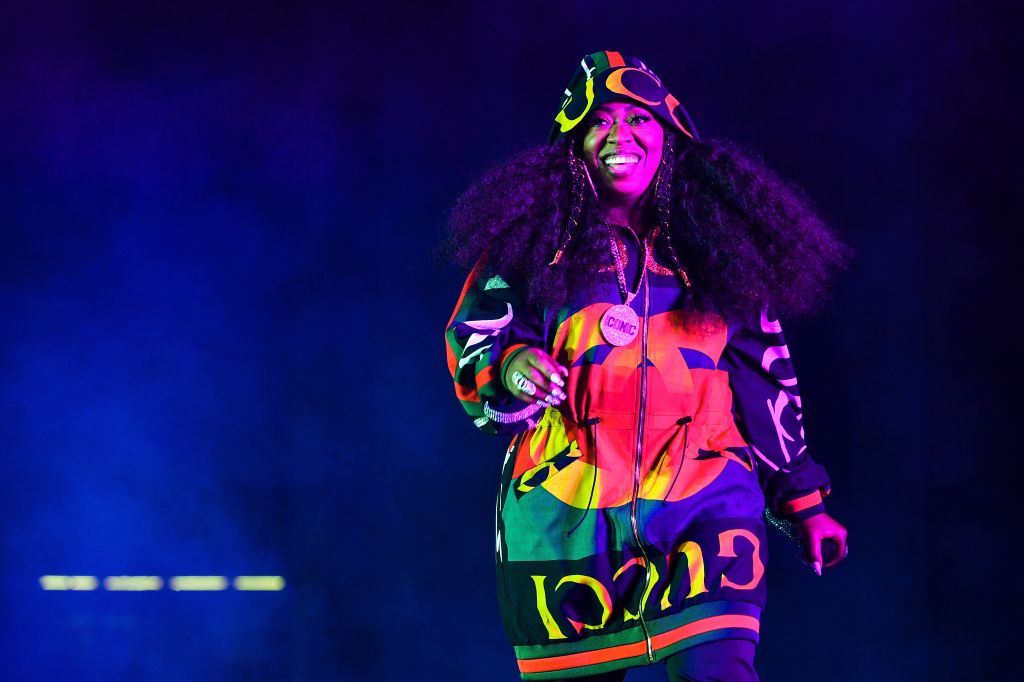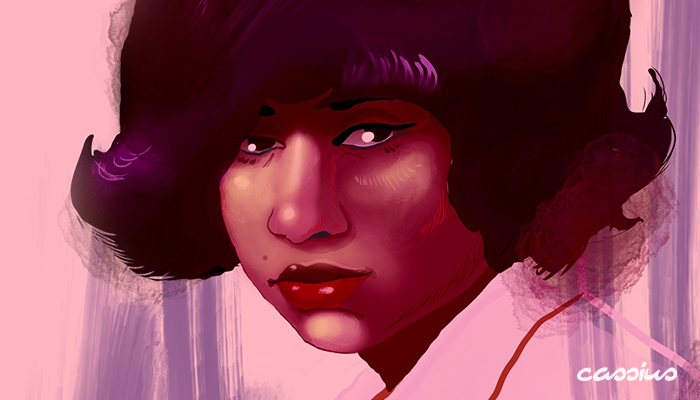
Source: Erika Goldring / Getty
Here is an unimpeachable fact about American pop culture: Black people determine what moves the needle. We always have. There’s no bigger testimony to that fact than award shows, especially MTV’s Video Music Awards — and Monday night’s fiasco was no different.
The MTV VMAs were promoted around Black artists: would Nicki Minaj’s Twitter shenanigans of the past week translate into on-stage drama? What would happen when Cardi B made her first public appearance since becoming a mother? What kind of show would Travis Scott put on? It’s clear that the VMAs — like the Grammys, Emmys and Oscars — needed these Black celebrities to make the show marketable to national audiences of multicultural viewers. But the jig is, Black people don’t need these award shows or the networks that produce them.
There’s a long-standing narrative – which has ventured into the land of mythology – that Michael Jackson’s campaign to get “Thriller” on MTV in 1983, to become the first Black artist on the network, launched his career to superstardom. That part is true. However, it’s also true that “Thriller” launched MTV, making it a cultural touchstone.
Black music has always been the star of MTV and the network’s flagship award show. As the years have gone by, the relationship between Black culture, MTV and the VMAs has become less symbiotic and more one-sided, with Black people legitimizing the shows without getting much in return. Black people are beyond the need for legitimacy from white folks and their award shows, point blank.
Look at a movie like Black Panther, shows like Atlanta, or Jay-Z and Beyonce’s joint album Everything Is Love. These stand as landmarks that shook culture through the excitement and support of Black people. Black Panther unsurprisingly broke nearly every record imaginable and we may never see another moment like it as long as we live. With Black people rallying behind the film, a cinematic triumph might I add, it became one of those historic moments we’ll never forget.
And how do they reward us? With the possibility of these stars holding up a trophy while white people clap for them?
Ask a Black person about the movie and you’ll get a long diatribe about the film’s importance, or the time they cried surrounded by happy Black people in a theater or the beauty of the first time we saw Wakanda on the big screen. That is more valuable than any award any committee of white people can provide us.
In fact, a nomination for Black Panther at the Oscars, “Everything Is Love” at the Grammys, Atlanta at the Emmys or any popular Black music video at the VMAs only gets Black people tuned in with excitement over possibilities of big-win moments, which leads us to push the hype for these shows and boost their ratings. And how do they reward us? With the possibility of these once-in-a-generation stars holding up a trophy while white people clap for them? How much is that really worth compared to the adoration they’ve already earned from Black people? And if any Black artist values those awards more than the love we’ve given them then he or she needs a goal reevaluation.

Source: Thomas de Yampert / iOne Creative
The days leading up to the VMAs were full of speculation about who MTV would get to honor Aretha Franklin and why the show had yet to give Missy Elliott a Video Vanguard Award. The show obviously did not honor Missy, one of the premiere creatives in the music industry who has given us two decades of classic videos and peak mind-bending visuals – on top of her music. But, what if they did? Would the award validate Missy in our eyes more than she already is?
It’s not like a lifetime award from a barely-watched award show is the one thing missing from Missy’s resume to solidify her greatness. There’s no way she’d value that award more than, say, the 24 hours of outpouring we gave Tevin Campbell last week. But, if she were to win the award, fans would watch the show. Publications like this very one would write retrospectives about her. Twitter would share videos and memories all for the service of adding ratings to the VMAs. So why don’t we just do all of those celebratory things without a need for an award show coming up? Oh, we already do that.
Then there was the Aretha tribute. MTV had Madonna, one of the most non-singing a$$ singers of all time singing a tribute to the greatest singer to ever walk the earth. It was like someone stepped on a packet of mayonnaise and it squirted on the whole entire audience, even the people watching at home. This is how they treat the greats when they pass. We didn’t need to witness such a travesty. Black folks are more than capable of doing our own tributes without being insulted. MTV, of course, knew there was a buzz about a tribute and I bet they’re even satisfied with the attention the Madonna tribute got even if it’s negative.
And here we are, continuing our tradition of tuning in to white award shows just to be frustrated about the outcome the next morning. We can avoid all of the anger if we just realize that we don’t need these shows and can ignore them while rewarding Black excellence on our own. Then watch what happens when these shows that rely so heavily on Black power find they have no audiences to insult anymore. They’ll come crawling back ready to shower us with all of their trophies, which will have only grown in irrelevance without us.
















